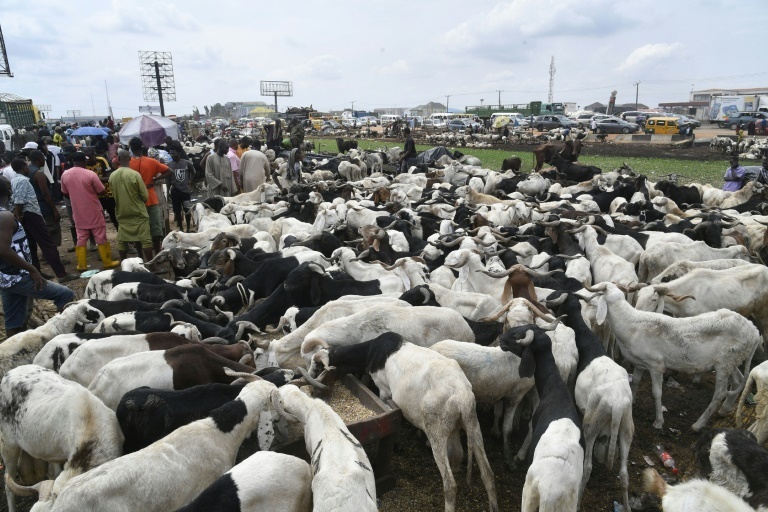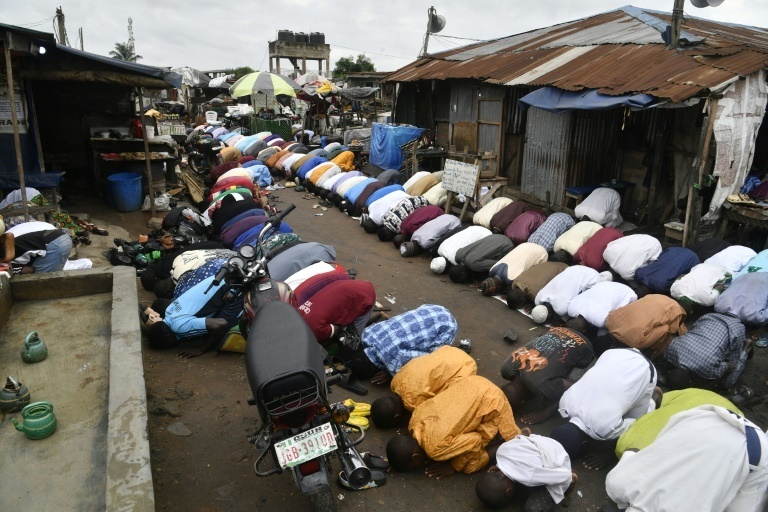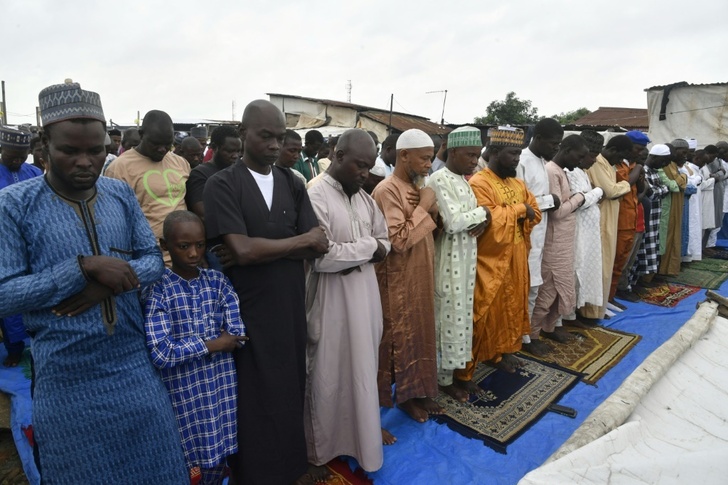Nigerians marked the Muslim festival of Eid al-Adha on Wednesday with prayers, celebrations and family dinners as many navigated high inflation, a steep currency devaluation and growing transport costs.
Africa's most populous nation is almost equally divided between the predominantly Muslim north and a Christian south, though many southerners are Muslim, including new President Bola Ahmed Tinubu.
Since he came to office at the end of May, Tinubu has taken quick decisions to help investment, ending a costly fuel subsidy and floating the naira currency, but hitting Nigerians with a short-term spike in living costs.
In Kano, Nigeria's second city and the de facto capital of the mostly Muslim north, make-shift livestock markets sprung up this week as residents prepared to buy rams, cows and camels as a sacrifice for the Eid festivities.
For Usman Muhammad, a 58-year-old nurse, ram was now out of his budget. But the father of seven said chicken would have to do for this year's family celebration.
"After buying food for the month from my salary, what is left is not enough to buy a ram and see me through the month," he said.

Eid al-Adha is one of the two largest Muslim celebrations and is meant to mark the annual pilgrimage to Mecca.
In his Eid message, Tinubu acknowledged the economic and security challenges facing Nigeria, where the armed forces are struggling with a jihadist conflict, armed gangs and separatist tensions.
"While I acknowledge all of these, I want to assure you that they are not insurmountable," his statement said.
- High prices -
The head of Kano livestock traders Ibrahim Sani said prices of ram had risen with a hike in costs of animal feed and the increase in the petrol prices after the subsidies ended.
"These factors affect the price of rams and other livestock," he said, holding a stick he used to prod animals to their feet for potential buyers.
A bag of animal feed was now 9,500 naira ($12) against 4,500 naira it cost last year.
"The naira devaluation has also had serious impact on ram prices because we source some livestock from neighbouring Niger, Chad and Cameroon. So, the low value of the naira means we buy rams at a higher price over there."

In Lagos, the financial hub of Africa's largest economy, businessman Durojaiye Adeosun said he used to buy two rams for Eid, but this year he has been looking around for the best price for just one.
"This year to even afford to pay for one now, I am still going up and down," he said.
Livestock trader Harun Muhammad, who was in Lagos selling animals purchased in Chad in West Africa's CFA francs, the naira devaluation was a struggle.
But Muhammed Olawale, who was buying livestock at the Lagos market, there was no point in comparing past prices with last year's Eid celebrations.
"There is inflation currently in Nigeria so with that we should understand it won't be cheap," he said.
"Sincerely ram is very costly this year. So we pray, before next year, things will be back to normal."
bur/pma/gw
© Agence France-Presse
Your content is great. However, if any of the content contained herein violates any rights of yours, including those of copyright, please contact us immediately by e-mail at media[@]kissrpr.com.
Source: Story.KISSPR.com

